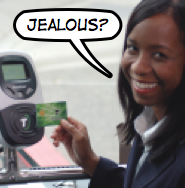
We need to have a national -- and a global -- conversation about drugs. Let's start with the big picture.
It is clear that the world is currently undergoing a massive paradigm shift, away from the 20th-century and into the 21st. The specifics of this paradigm shift are not entirely clear yet (historians will be able to make better sense of it after it has occurred), but it is clear that the global financial system meltdown has spurred the housing market to shift from suburban sprawl towards more focused development in cities; for cars to shift from gas-guzzling SUVs to plug-in electric hybrids and similar more-efficient vehicles; for the American presidency to shift from a war-mongering rich white idiot towards a smart guy who actually understands the issues and has a clear progressive vision for the future. This paradigm shift, however, is not all roses and honey. There is massive bloodshed and economic hardship worldwide. What I would like to propose is a way to ease just a little bit of both, both abroad and domestically, through the following program:
* Legalize all drugs, worldwide
* Tax their productions and distribution
* Regulate them like alcohol and cigarettes are currently regulated
* Use some of the tax proceeds to help fund treatment programs and other initiatives to deal with the societal consequences of this program.
Currently, the United States is spending billions of dollars in places like the Andes of South America, Central America, Mexico and Afghanistan to fight drug production and battle with drug cartels and the terrorist/guerrilla/insurgent groups that are funded by their money. Instead of spending American taxpayer dollars on military spending for a war on drugs that cannot ever be won, we should cut out the financial legs of the international drug cartels by shifting drug profits to the sovereign nations within which drug production occurs, which will both empower and stabilize those governments while at the same time ridding them of some of their largest domestic problems.
In Afghanistan, the Taliban is largely funded by domestic drug production and international trafficking. Despite American and NATO efforts at drug eradication, hashish production is rising even as the military reports signs of progress in opium poppy eradication.
In Mexico, over 10,475 executions related to the drug war have occurred since President Calderon took office in 2006. This is just the latest Latin American country where drug violence has raised its ugly head, as thousands have died in Colombia, Peru, Bolivia, Panama and elsewhere in the decades since the United States has been fighting the drug war with all the force of its military might. There are signs, however, that this hemisphere is getting fed up with this failed policy, and that change may be on the horizon.
Latin American leaders, in releasing a report in February calling for a global paradigm shift in drug policy, said:
“Prohibitionist policies based on the eradication of production and on the disruption of drug flows as well as on the criminalization of consumption have not yielded the expected results. We are farther than ever from the announced goal of eradicating drugs.”
We will never eradicate drugs. We've tried for decades, indeed for nearly a century, and all the best efforts of the best minds and most powerful governments in the world have failed. Americans and others around the world continue to use drugs of all flavors, and the market continues to supply them. The time has come for a fundamental change in the system.
A recent essay in The Wall Street Journal strongly advocates for the legalization of drugs, saying:
Decriminalizing the possession and use of marijuana would raise billions in taxes and eliminate much of the profits that fuel bloodshed and violence in Mexico. ... The only long-term solution to the cartel-related murders in Mexico is to legalize the other illegal drugs we overlooked when we repealed Prohibition in 1933.
Obviously, the recent media storm regarding all of the drug-related deaths in Mexico is weighing heavily on the minds of many people in this country. But, the WSJ article goes further:
We cannot destroy the appetite for psychotropic drugs. Both animals and humans have an innate desire for the altered consciousness obtainable through drugs. What we can and should do is eliminate the black market for the drugs by regulating and taxing them as we do our two most harmful recreational drugs, tobacco and alcohol. ... Marijuana presents the strongest case for this approach. According to some estimates, marijuana comprises about 70% of the illegal product distributed by the Mexican cartels. Marijuana will grow anywhere. If the threat of criminal prosecution and forfeitures did not deter American marijuana farmers, America's entire supply of that drug would be home-grown. If we taxed the marijuana agribusiness at rates similar to that for tobacco and alcohol, we would raise about $10 billion in taxes per year and would save another $10 billion we now spend on law enforcement and imprisoning marijuana users and distributors. ... After we reap the rewards from decriminalizing marijuana, we should move on to hard drugs. This will encounter strong resistance. Marijuana is a relatively safe drug. No one has ever died from a marijuana overdose nor has anyone gone on a violent rampage as a result of a marijuana high. Cocaine, heroin and amphetamines, on the other hand, can be highly addictive and harmful, both physically and psychologically. But prohibition makes those dangers worse, unleashing on vulnerable users chemicals of unknown content and potency, and deterring addicts from seeking help with their dependency. There is burgeoning recognition, in the U.S. and elsewhere, that the health benefits and the myriad social and economic advantages of substituting regulation of hard drugs for their prohibition deserves serious consideration.
We must recognize that our global war on drugs has failed. We must recognize that our domestic war on drugs has failed. We must move immediately to legalize drugs, both internationally and domestically. This will not only allow us to achieve many elusive foreign policy goals that have been impossible up to now (such as finally defeating the Taliban and other drug-funded insurgency groups), but it will allow us to honestly deal with the myriad domestic issues created by our failed drug policies. This will require our national conversation to address some very tough topics, but luckily we are not without examples from abroad to help guide us as we make the difficult decisions and craft the policies that will be required to govern our changed society. The WSJ article gives us one lead:
A most impressive experiment has been underway in Portugal since 2001, when that country decriminalized the possession and personal use of all psychotropic drugs. According to a study just published by the Cato Institute, "judged by virtually every metric," the Portuguese decriminalization "has been a resounding success." Contrary to the prognostications of prohibitionists, the numbers of Portuguese drug users has not increased since decriminalization. Indeed, the percentage of the population who has ever used these drugs is lower in Portugal than virtually anywhere else in the European Union and is far below the percentage of users in the U.S.. One explanation for this startling fact is that decriminalization has both freed up funds for drug treatment and, by lifting the threat of criminal charges, encouraged drug abusers to seek that treatment.
There is thus an emerging national and international consensus that the war on drugs has failed, and that continuing to spend money fighting it is to throw more good money after bad. We can achieve many foreign policy goals, while also paving the way for a new golden era of enlightened domestic policy, by legalizing, taxing and regulating all drugs. This effort must be undertaken both within the United States and internationally, and it will involve renegotiating the many treaties that we have forced on our foreign allies over the years. This effort will be worth it, and it will pay off by providing for peace and prosperity in a way that nearly nothing else will that we could do as a nation right now. We must not let the difficulty of the effort deter us from this goal, as it is indeed the only reasonable option that we have left.
To a brighter future!
cheers,
~Garlynn






